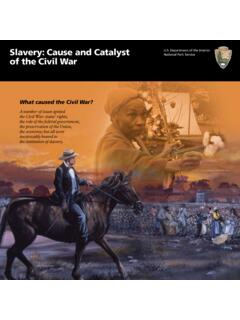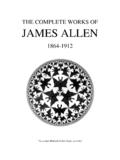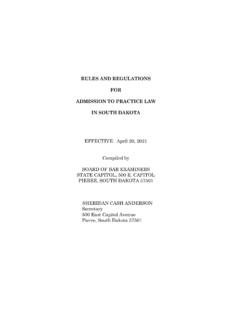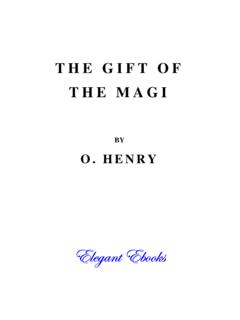Transcription of MYTHS IN AFRICAN CONCEPT OF REALITY - ed
1 Vol. 6(2), pp. 9-14, February 2014 DOI: ISSN 2141-6656 2014 Academic Journals International Journal of Educational Administration and Policy Studies Review MYTHS in AFRICAN CONCEPT of REALITY Jones M. Jaja Institute of Foundation Studies, Rivers State University of Science and Technology, P. M. B. 5080, Port Harcourt, Nigeria. Accepted 4 January, 2012 MYTHS are accounts of the origin of societies and institutions not subject to rationalization but often used by historians and philosophers in their quest to study AFRICAN history; for it is only thus that we can comprehend the various aspects of the continent s history and culture.
2 This paper examines the critical understanding of AFRICAN worldview, the place of AFRICAN philosophy and the significance of MYTHS in the reflection of AFRICAN experience. Key words: MYTHS , communalistic, AFRICAN philosophy, earth and God. INTRODUCTION Philosophy as a discipline is the reflection of mankind on the ideas and institutions guiding their existence. Philosophy as Staniland (1979:3) defines it is the criticism of the ideas we live by ; it is the criticism of the ideas and material inventions that a particular society originates for administering itself.
3 It is important to emphasize that philosophy ideals with culture met in the descriptive sense but in the critical and prescriptive sense. Where the anthropologist celebrates culture, the philosopher improves it. It is this critical essence of philosophy in relation to culture that informs william james conception of philosophy as the habit of searching for alternatives. The critical nature of philosophy in relation to culture can be explained more aptly with the clarification that Staniland gave. According to her, philosophy is a critical enterprise.
4 She explains that by philosophy being critical, she does not mean the negative destruction of culture, she explains: By criticism I of course mean not negative appraisal; but rational, impartial and articulate appraisal, whether positive or negative. To be critical of received ideas is accordingly not the same thing as rejecting them; it consists rather in seriously asking oneself whether the idea in question should be reformed, modified or conserved, and in applying one s entire intellectual and imaginative intelligence to the search for an answer (Staniland, 1979:4).
5 Philosophy is actually a personal reflection about all aspects of REALITY . It is an exercise in which one tries to give meaning to the world from his or her own standpoint given the prevailing circumstances and environmental influences. Philosophizing in the experience of the traditional AFRICAN takes the character of critical reflection of the AFRICAN understanding of REALITY and world view. MYTHS , folklores proverbs therefore become the major sources of AFRICAN philosophy (Jaja, 1995:28). More so, MYTHS encode the traditional settings of the AFRICAN and their belief system.
6 However, ardent critics of MYTHS have branded them pre-philosophic, irrational and devoid of authenticity. This paper shows that MYTHS are constructs meant to interpret REALITY . They portray the AFRICAN way of thinking and as vehicles for preserving and transmitting valued knowledge of philosophical and moral truths. Myth Generally, a myth is a story which is believed to be true and has its origin in the far distant past history of a people. Alagoa (1978:9) argued that they are historical information transmitted orally by processes peculiar to each community.
7 MYTHS are man-made stories that play explanatory functions in the AFRICAN understanding of REALITY . The Encyclopedia Britannica defined myth as; .. a story handed down in oral form from our forefathers E-mail: Tel: 08033168998, 08056049778. 10 Int. J. Educ. Admin. Pol. Stud. which explain REALITY , concepts and beliefs and further serve as explanations of nature events such as creations, origin of things, history of a race or a people (1133). This shows that myth is not just a product of human imagination but a direct expression of REALITY .
8 Anyanwu (1987:241) citing Houndtonji says that man cannot live without MYTHS . The reason is quite obvious: man is a being that cannot bear to live with certain questions unanswered that is why he sits down to formulate MYTHS to make those questions answerable. Thus man is a myth-making animal (Anyanwu, 1987:280). Some thinkers have rightly observed that MYTHS are pre-philosophic in nature; that philosophy started where MYTHS stopped, which presupposes that philosophy has its roots in MYTHS (Jaja, 1994:125). It is pertinent to point out that MYTHS are results of the revelation of thou and are often founded upon an original experience that reaches beyond the sensorial and rational, but they are not illogical.
9 They are mostly susceptible to rational analysis and logical interpretation. An analysis of many MYTHS as shown here shows that actions of gods and heroes often presuppose a keen analysis of given circumstances and are based on rational decisions (Kirk, 1974:60). It can be argued that some MYTHS represent complex logical systems which are different from those which are usually found in contem-porary western societies. Nevertheless, according to a common view, there is a radical separation between mythos and logos, between myth and philosophy.
10 Myth is associated with the mysterious and illogical, and philosophy with the rational and logical (Apostel, 1981). MYTHS are part of a way of life and state precedence and models for human actions, but they do not seek to explain them on a rational basis. MYTHS use images, philosophy, concepts. Philosophy asks generalized questions, relies on systematic reasoning, and rejects the supernatural explanations of the world, but mythological society; are unsystematic and deal with the sacred (Apostel, 1981).














